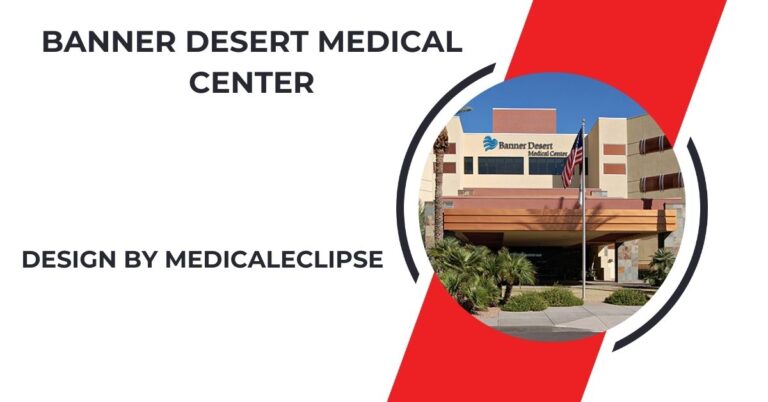Bone and joint issues occur among people of all ages. From minor discomfort to chronic pain, these conditions can impact daily activities and quality of life. Orthopedics focuses on diagnosing, treating, and managing these disorders. Understanding how this medical specialty operates may help individuals seek the right care when needed.
Orthopedics is a branch of medicine specializing in the musculoskeletal system. This system includes bones, joints, ligaments, tendons, and muscles. Orthopedic specialists address injuries, congenital conditions, and degenerative disorders. They also manage various conditions such as fractures, arthritis, back pain, and joint instability.
Orthopedic care aims to restore mobility, reduce discomfort, and maintain musculoskeletal health. Specialists use a variety of methods, including non-surgical treatments, physical therapy, and, when necessary, surgical procedures. Orthopedics covers acute injuries, preventative care, and long-term management of chronic disorders.
Orthopedists frequently collaborate with other healthcare providers, including physiotherapists and primary care doctors. This teamwork helps create personalized treatment plans for patients. By addressing various aspects of a patient’s health, they provide comprehensive and effective care.

How Do They Address Bone and Joint Disorders?
Orthopedists rely on various diagnostic tools to assess musculoskeletal conditions, including imaging techniques such as X-rays, MRIs, and CT scans. These are combined with physical exams and symptom discussions to identify the root cause of a patient’s issue. This comprehensive approach ensures accurate diagnoses and effective treatment planning.
Non-surgical treatments are often the first line of care, focusing on alleviating symptoms and improving function without invasive procedures. These include physical therapy, pain management strategies, and the use of assistive devices like braces. Medications may also be prescribed to manage pain or control inflammation, offering relief while addressing underlying conditions.
When non-surgical methods are insufficient, surgery may be necessary. Common orthopedic procedures include joint replacements, ligament repairs, and fracture fixation, all performed using advanced techniques to improve outcomes and shorten recovery times. Rehabilitation, including post-treatment physical therapy, is a key part of orthopedic care, helping patients regain strength, flexibility, and range of motion while preventing future injuries.
How Do I Know It Is Time To See One?
Recognizing when to consult an orthopedist can make a difference in managing bone and joint disorders. Persistent pain or discomfort that interferes with daily activities may indicate the need for evaluation. Swelling, reduced mobility, or deformity in the affected area are additional signs to seek care.
Previous injuries that fail to heal properly can also benefit from orthopedic intervention. Recurring pain or instability in a joint after recovery is worth exploring further. Ignoring these signs may lead to worsening symptoms and potential complications.
Active individuals, including athletes, might require orthopedic attention when facing repetitive strain injuries. These conditions can result from overuse or improper technique during physical activities. Timely assessment helps avoid long-term damage and supports safe physical activity.
Take Care of Your Musculoskeletal Health
Orthopedic care addresses bone and joint disorders. From diagnosis to treatment and rehabilitation, specialists provide comprehensive solutions aimed at restoring function and improving quality of life. If you experience symptoms that affect your daily routine or mobility, consulting an orthopedist may provide clarity on the steps forward. Your musculoskeletal health matters—prioritize it by seeking specialized attention when needed.
-
What Is Medicaid Exclusion For Funeral Plans – Benefits of Medicaid Funeral Exclusions!
Medicaid exclusion for funeral plans allows individuals to set aside funds for funeral expenses without affecting Medicaid eligibility. This ensures financial stability and preserves benefits. In this article, we will delve into “What is Medicaid exclusion for funeral plans,” exploring its significance, how it works, and why it is a vital tool for financial and […]
-
Banner Desert Medical Center – Trusted Care in Arizona!
Banner Desert Medical Center provides comprehensive medical care, specialising in trauma, cardiology, cancer, and paediatric services. In this detailed guide, we’ll explore the history, specialties, patient care experience, and the many reasons Banner Desert Medical Center is a top choice for healthcare in Arizona. History of Banner Desert Medical Center: Established in 1973, Banner Desert […]
-
Why Cranberry Femine Health – The Ultimate Natural Wellness Guide for Women!
In recent years, more women are turning to natural solutions to manage their health—particularly when it comes to intimate and urinary wellness. Among all the herbal and fruit-based remedies available, one stands out: cranberry. So, why cranberry for feminine health? Is it just another wellness trend, or is there actual science behind it? In this […]
-
What Is The Best Peptide For Bone Health – A Comprehensive Overview!
When it comes to maintaining strong, healthy bones—especially as we age or recover from injury—many people are turning to peptide therapy. But with so many peptides on the market, you might be wondering: “What is the best peptide for bone health?” In this article, we’ll explore the most effective peptides for bone regeneration, density, and […]
-
Why Is Signify Health Calling Me – Understanding the Purpose Behind the Call!
You may have recently received a call from Signify Health, and understandably, you’re wondering: “Is this a scam?” or “Why are they reaching out to me?” Signify Health is not a telemarketing company or a scam. It’s a legitimate healthcare organization that works with insurance providers like Medicare Advantage, Medicaid, and commercial health plans to […]
-
Adolescent Health Sandra Mcchanja – Advocacy, Research, and Impact!
Adolescent health is a cornerstone of public health, as it shapes the future of communities, nations, and generations. One of the notable figures making a real impact in this field is Sandra McChanja, a professional recognized for her work in adolescent healthcare, youth empowerment, and social health education. In this article, we’ll explore what adolescent […]






Leave a Reply